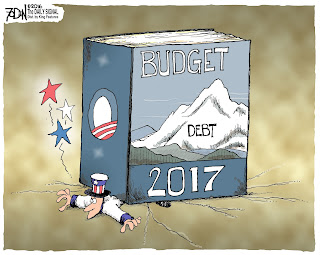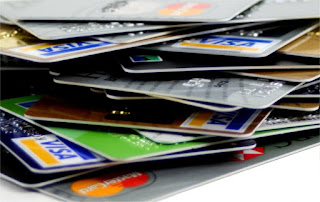As we go through our lives, we often try and focus on what will help us achieve our dreams, what will be healthy for our family as a whole, and what will keep our lives interesting. This is hard enough first to identify and second to carry out, so it can be hard to look beyond this set of criteria that’s there to help your happiness.
It just doesn’t feel good to believe that you could, at any time, experience an issue that might take you out of work for a while, or drain your saved finances in some other way. Luckily, this problem has for the most part been considered by people who are experts in personal finance, and they usually espouse the same tips to help you with these circumstances.
It’s not always easy to place your earnings in areas that will, in an ideal scenario, never need to be used. However, life is unpredictable enough without you compounding that fact further by being ill-prepared. Being responsible for yourself is one consideration, and you need to cover yourself adequately in that case too. If you have a family, you need to take care of these personal finance planning contingencies.
In a word: Insurance, insurance, insurance, and to add one more important word: compensation.
But what are they, and how can they help you?
Here are a few examples.
Insurance
Insurance comes in many forms. It’s likely you’ve heard of it. Paying a flat rate to an insurance firm will help secure you if the worst goes wrong and if your health or property is harmed. In some cases, the incident in question might affect both, and if that’s the case, it’s up to you to make sure you have adequate cover. It’s important to understand the difference between insurance and the means of gaining compensation.
Sometimes they are not entirely linked as you’d imagine, and you might need to litigate for compensation. As a preface, it’s important to contact a reputable personal injury lawyer like Robins Cloud https://robinscloudnewmexico.com/ who can educate you on where this line falls and how you can calculate your compensation. Not everything is fixed by financial reward, but it can surely soften the blow when you’ve been involved in an unfortunate situation.
Here are some more forms of insurance that you might enjoy looking into:
Travel
Travel insurance is necessary if you’re taking a vacation or journey long miles to and from your work. Usually, travel insurance for a holiday will be arranged by your holiday booking firm, but you can go elsewhere to find better and more competitive packages if needs be. These will usually take into consideration the entire length and breadth of your flight, including travel luggage insurance, holiday confirmation insurance, and insurance against personal harm during your flight or journey. Having this for your financial peace of mind is important. If something goes wrong or the airline loses something that is vital to you, you will be duly compensated. Usually, the travel insurance packages are the most competitive insurance package you can find out of the categories in this article, so it’s worth checking out almost every single time you make a journey of some import.
Car
Car insurance isn’t just recommended; it’s mostly a legal requirement dependent on what country you live in. You can be sure that if you live in the modern world replete with well-maintained roads and highways, you should be paying insurance premiums to keep yourself roadworthy. This helps if you have a crash and need to cover the excess, but it can also help if you break down on the side of the road and need help getting to your destination. There is simply no way to opt out of getting car insurance.
There are ways to mitigate the cost, however, such as keeping a healthy and stable driving record. Unfortunately, as a new, young driver, it’s likely that your insurance premium is the highest that you will face in your life. You can reduce this somewhat by being placed on your parent's insurance plans just as you get roadworthy and used to your automotive freedoms. The best insurance you can also add to this package, free of charge, is a disciplined, sensible and confident approach to driving safely on the road.
Life
Life insurance is only consideration you should take into account when you have dependents, or a relatively decent estate to pass down the family. Put in other words, you should get life insurance when someone in your family has financial difficulty to contend with as a result of your death, as they’ll already be struggling through the emotional pain. It can also help protect your family in cases of wrongful death in a medical setting, or work negligence. It’s probably the least appealing prospect to consider in this list, but it’s arguably one of the most important if you have people dependent on you.
Career
A traditional method of insurance is job insurance. This can be defined in many ways. To use an example, imagine you’re a great piano player, and you’re regularly invited to concerts around the world to recreate masterpiece classical sonatas. Your hands, ability to hear and rational faculties can be defined in a somewhat clinical sense as ‘tools’ that keep you active and happy in your career.
They help you win your income and keep you busy. If you lose one of these abilities through whatever horrific or tragic means that can unexpectedly befall anyone, it’s likely that you’ll have to deeply reframe what creative or productive input you have in the world. It’s a tragedy that because of this, you’ll lose your job and never be able to apply your talents again. Making this worse, it’s likely that your income will dry up as a result of this. If you do find yourself in a financial crisis, consider checking out our artilcle that will help you, step-by-step figure out your best method of recuperating
www.financeideas4u.com/2017/06/how-to-keep-your-head-while-dealing.html. This will Career insurance also protects against these unimaginable eventualities and can help you with a nest-egg financial reward to assist you through the coming challenging years, on top of what a great personal injury lawyer could do for you.
It’s important to be prepared in this world. While none of the items on this list are pleasant to think about, they must be considered. While personal injury lawyers are excellent and can help you out of a tight spot, especially when facing some form of injustice, it’s important to compound their valiant efforts with a great insurance package. Be sure to consider these, and you can rest easy in the knowledge that you’ve done everything you can to shield yourself financially.
















